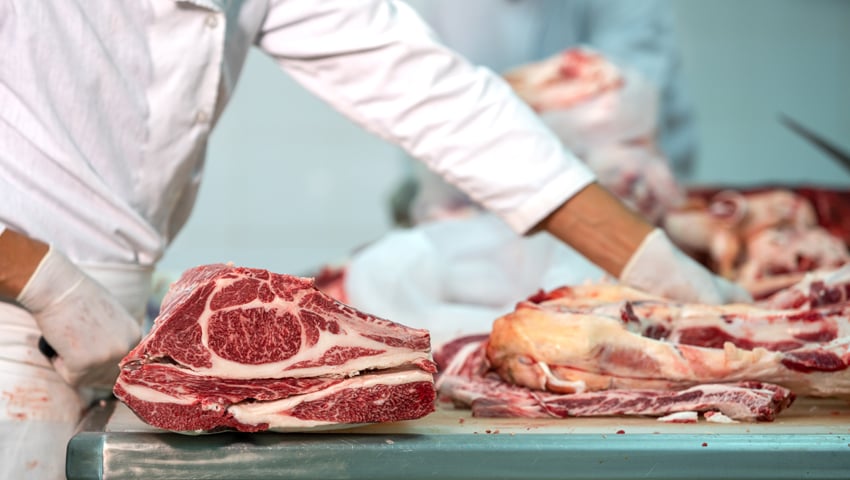The imminent closure, on 27th March, of the only small abattoir in the Yorkshire Dales, spells disaster for the rural community, landscape and local food.
Located in Prime Minister Rishi Sunak’s own constituency in Wensleydale, McIntyre Meats is a family run business that has operated for 23 years and has 1,800 customers representing a range of meat businesses that supply local people, retailers and the hospitality sector.
The news follows hot on the heels of a spate of small abattoir closures in the past two years, including Tottingworth in East Sussex, Black Brow in Cumbria, Mettrick’s in Derbyshire and, most recently, Long Compton in the Cotswolds. With each closure, customers are forced to go further afield, putting pressure on remaining small abattoirs who are now trying to accommodate increasing numbers.
Long distances and rising journey costs have made some meat businesses unviable. Sheepshare, which supplied communities in Brighton with local meat, has ceased operating following the closure of Tottingworth. McIntyre Meats already had customers coming from as far as Whitby, a more than two hour journey, due to lack of closer abattoirs.
McIntyre Meats customer Graham Bottley said, “I use the abattoir to kill my mutton wethers that I supply direct to customers. The mutton is very popular and ships all around the country (and has supplied Michelin-starred restaurants). Without a local abattoir, that element of my business would be far more difficult and I may be forced to stop doing that entirely. The closure of the abattoir will have a significant knock on effect on numerous small businesses like mine, butchers, independent supermarkets and more.”
Megan Perry, Head of Policy and Campaigns for the Sustainable Food Trust, said, “The wide-scale loss of local meat supply chains is pushing the UK towards an increasingly centralised, consolidated system, dominated by supermarkets and a few, very large slaughtering and processing operations. Animals are being taken on increasingly long journeys, in some cases as many as 200 miles, to be slaughtered. This is bad for animal welfare, bad for the environment and bad for customers who want to buy local meat.
“The closure of small abattoirs is a cross-cutting issue and is incompatible with the Government’s public health, environmental and food security agendas. Concentrating meat supply into fewer and larger operators could spell disaster.
“Coordinated action involving industry experts, local authorities, farming groups and abattoir users is needed to find solutions for areas that have lost their abattoir. The Save Long Compton Campaign is one such example where action is being taken, and a similar coordinated approach is now needed for Yorkshire.”
John Mettrick, Chair of the Abattoir Sector Group, said, “When a business is experiencing low returns, and on top of that, the effects of poorly designed regulation, then it’s not surprising when they decide enough is enough. This is why the reform of regulations for small abattoirs is so important. It’s inevitable that due to location and the value of land on some existing abattoir sites that some will close due to the commercial value for housing or other land uses. Whilst regulation reform will continue to be a focus, a fund to build new small abattoirs to service the local meat supply chain will be needed in addition to the Smaller Abattoir Fund that can only help existing premises.”
Efforts have been made to address problems facing the sector. The Government’s recently launched £4m Smaller Abattoir Fund will award grants to help support smaller abattoirs across England, while Defra’s Small Abattoir Working Group is seeking to address regulatory and other issues. The Abattoir Sector Group continues to work with government to address problems, including calling for a move to risk-based and proportionate regulation for small abattoirs.
